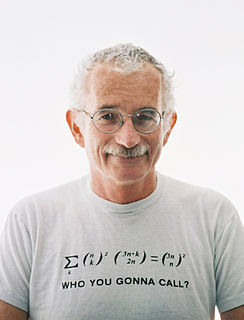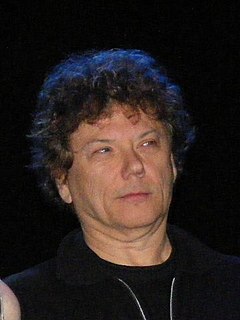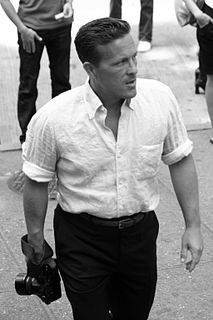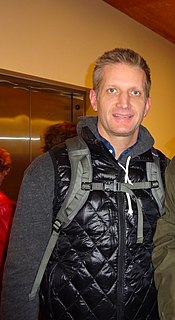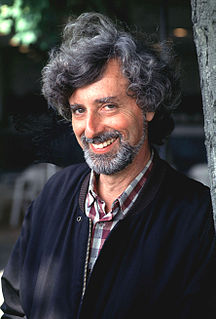A Quote by China Mieville
I think there's something quite interesting about the almost tragic quality of a lot of overwrought prose, because it has a much more self-conscious awareness of its own failure to touch the real.
Related Quotes
For better or worse, I seem to gravitate toward writing about something or someone else, then have my own self shove its way into that story. It seems insanely narcissistic. But I also think there's a particular effect that comes from using my autobiography in service to another story, as opposed to being the subject. I'm much more comfortable working in that mode. And I do think I have a persona or mood that I keep coming back to: self-conscious, self-critical, unsure. I write a lot about bodies, particularly male ones, usually as a point of emphasis for my insecurities about my own.
You can keep counting forever. The answer is infinity. But, quite frankly, I don't think I ever liked it. I always found something repulsive about it. I prefer finite mathematics much more than infinite mathematics. I think that it is much more natural, much more appealing and the theory is much more beautiful. It is very concrete. It is something that you can touch and something you can feel and something to relate to. Infinity mathematics, to me, is something that is meaningless, because it is abstract nonsense.
Define self-awareness and tell me what it is about it that requires something more than a material explanation. I do not accept the burden of explaining all phenomena, real or imagined. If you think more than matter is required for this thing you call self-awareness, which you have not defined, then you have the burden of showing why.
The capital-T Truth is about life BEFORE death. It is about the real value of a real education, which has almost nothing to do with knowledge, and everything to do with simple awareness; awareness of what is so real and essential, so hidden in plain sight all around us, all the time, that we have to keep reminding ourselves over and over: "This is water." "This is water." It is unimaginably hard to do this, to stay conscious and alive in the adult world day in and day out.
I want to say that what is cool about writing self-aware first person narrative is that the awareness is not necessarily the same awareness of the reader. I have a story coming out in the Paris Review and it's about a hipster. He think's he's self-aware, he's very introspective and analytical, but when you're reading it you can totally see through his self-analysis because you have a higher awareness than he does. I like playing with that too.
I was a lot more critical of my body when it was probably pretty awesome. Why did I not ever wear jean shorts? That's so crazy. I was so skinny. I didn't have any cellulite what was I thinking? I was more willing to wear short skirts after I had my kids. I never wore them before. Ever. I was so self-conscious. Now I'm a lot more confident in my skin - because who cares? At the end of the day, it's so much time spent on something that really doesn't matter that much.
I think in Japan I think there is a lot of style and a lot of subcultures, but it will be interesting to see how much of them... how much of the people wearing those clothes are really expressing something about who they are or who they want to be and it will be very interesting to see, especially once you get there, once you get to a certain city like in Stockholm you really get to know the people a little bit and what they're saying through their clothes. It's more... To me I think it's much more interesting than just the clothes they're wearing or the length of the skirt.


